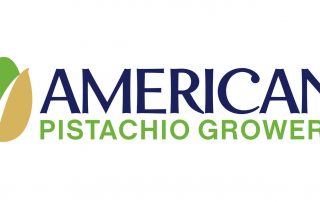Could empty lots be growing food, economic opportunity?
Courtesy of UC ANR News
UCCE scientists study feasibility of specialty crops for small urban growers
The vacant lots around your neighborhood could be growing fruits and vegetables and making local produce more accessible – while reducing energy needed to transport and distribute the food. Could turning those empty lots into small farms also become opportunities for economic development?
To answer this question, a team of researchers from University of California Cooperative Extension in San Diego County are investigating the economic feasibility of growing high-value specialty crops in urban settings like vacant lots. The project – led by Eric Middleton, UCCE integrated pest management advisor for San Diego, Orange and Los Angeles counties – is currently in progress at The Flower Fields in Carlsbad, a seasonal attraction for locals and tourists.
Tucked away in the back of the field is the Small-Scale Urban Ag Demonstration Site where Middleton and his team established a small farm on approximately 17,000 square feet, starting fall 2023. Funded by the U.S. Department of Agriculture National Institute of Food and Agriculture, the farm is designed to evaluate containerized production both outdoors and under high tunnels.
Growers don’t necessarily need land, just space
High tunnels, also referred to as hoop houses, are semi-permanent structures that act similarly to greenhouses in providing a controlled environment. For the experiment, Middleton will compare cost, effort and durability of two types of high tunnels: one made of steel and the other out of PVC pipes.
“We want to give interested growers information on as many options as we can,” said Middleton, who explained that the project is motivated by the challenges of urban settings, including limited space and lack of arable land.
In the trial, they are growing turmeric, ginger and blueberries. The high-value crops were selected because of their potential to earn a profit. Data evaluating plant variety, soil mix, fertilizer, growth performance, yield and pest and disease pressures will be collected and reported when the project concludes in 2026.
As the crops develop in containers – blueberries in pots and turmeric and ginger in grow bags – Middleton pointed out the mobility aspect of the study, noting that growers don’t necessarily need land, just space.
Whether it’s a backyard or a rooftop, containerized production means easier transport, especially since vacant land doesn’t always remain vacant forever and urban lots may often need soil remediation. Growing in containers solves the anticipated problem of having to relocate.
Where to set up shop in San Diego County
Jan Gonzales, project coordinator and community education supervisor for UCCE San Diego County, is leading the effort to identify available urban land in San Diego County as well as the policies and procedures for growers to access these spaces.
Gonzales is collaborating with community members who are working on similar projects to identify space for prospective growers.
“This has been done before for different objectives and for specific areas in the region, but the information was either project-specific and not publicly available, or not easy to find,” Gonzales said.
Having spoken with people associated with previous or ongoing agricultural land mapping projects, Gonzales has agreed to coordinate and facilitate an advisory work group to discuss areas of potential collaboration and develop project efficiencies. She anticipates holding the first group meeting before the end of the summer.
A production guide to help community members re-create the project
The ideal audience for a study like this is anyone who wants to grow specialty crops, according to Lindsey Pedroncelli, interim director of UC South Coast Research and Extension Center in Irvine, who worked on the project alongside Middleton when she was a staff research associate with UCCE San Diego.
“If you’re a new grower or a grower who wants to diversify your crop production, what we’re learning here can be applied to you,” said Pedroncelli.
Pedroncelli has been instrumental in bringing the experiment to life and documenting its step-by-step workflow thus far. The production guide, which is being created as the study unfolds, will include instructions detailing how to replicate the experiment from the ground up. Currently, it contains information on how to design your farm, the materials to buy, building structures, irrigation setup and crop management.
The most intriguing open question, whether the operation is profitable, is the driving force behind the production guide and will certainly be addressed, Pedroncelli said.
Book a tour and visit the farm
When visiting the farm, you’ll encounter three varieties of blueberries: Star, Snowchaser and Misty. Snowchaser has been a top producer since it was planted in January, but the variety is known to be an early season producer.
Using only one variety of each, the turmeric and ginger were planted in late March-early April. With some unanticipated cold weather in San Diego County, both crops struggled when transitioning out of dormancy, leading to very slow progress, which the team is still navigating today.
Visually, Middleton and his team have noticed differences between the crops growing under the high tunnels versus those grown outdoors, although the data has not been analyzed to confirm or explain notable differences.
Attempting to demonstrate how to profitably grow high-value crops in urban settings using limited space and resources, Pedroncelli said she hopes this study will also encourage people to grow culturally significant crops for their communities.
To tour the Small-Scale Urban Ag Demonstration Site at The Flower Fields in Carlsbad, email Eric Middleton at egmiddleton@ucanr.edu with “Urban Agriculture Demonstration Site Tour” in the subject line.
To learn more about the project and its progress, visit https://ucanr.edu/sites/socalIPM/Small_Scale_Urban_Agriculture_Project_/.

















